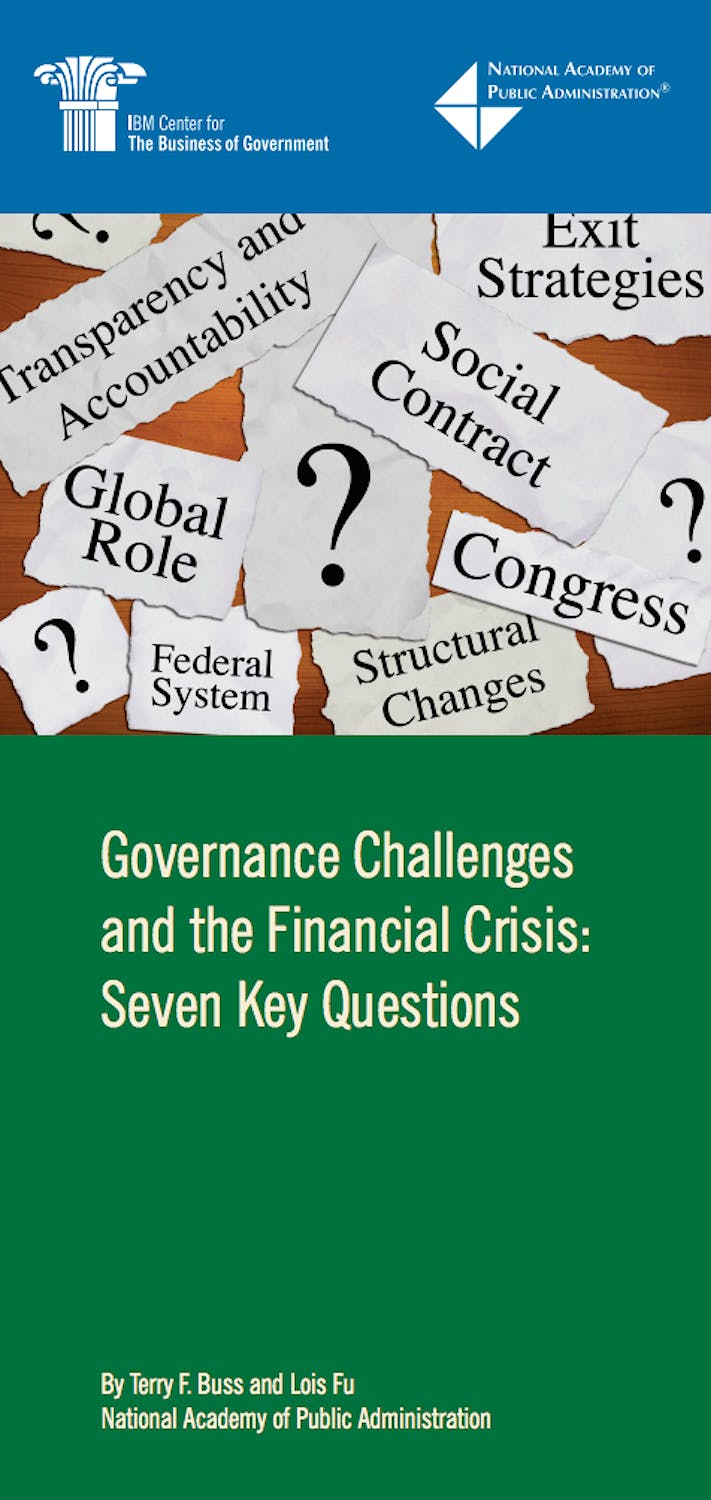
Governance Challenges and the Financial Crisis: Seven Key Questions
In the midst of a global economic crisis, the federal government responded on an unprecedented scale and scope, with injections of trillions of dollars into financial markets, infusions of cash to troubled industries, state and local governments, and people in need.
Click the button below to view the View Study Report.
View ReportKey Findings
Government is employing tools in ways never before considered and inventing new tools, in the hope of stabilizing the economy and spurring economic recovery. Under the leadership of National Academy Fellow Don Kettl and National Academy President Jennifer Dorn, the National Academy of Public Administration convened a roundtable of government leaders, business leaders, researchers and other experts to discuss governance issues related to the government’s response to the financial crisis. Seven strategic questions related to governance emerged from the discussion, held earlier this year, which was moderated by Don Kettl. The National Academy and the IBM Center for the Business of Government are pleased to offer this summary of the roundtable in an effort to stimulate a national discussion of these questions.
Recommendations
Government investments have the potential to transform the role the federal government plays in the private economy. While largely intended to be temporary, many fear that these investments will create long-term, almost “permanent” expectations—particularly with regard to education, unemployment insurance, infrastructure and tax breaks. One challenge confronting the government is to devise exit strategies that balance policy objectives, such as minimizing economic disruption and securing a return on taxpayer dollars, while not undermining the viability of companies or their market competitors, as well as governments and other groups. Another challenge is to determine the appropriate scope of ongoing federal regulatory authority in light of both practical demands and the appropriate role of the federal government in managing the economy.
